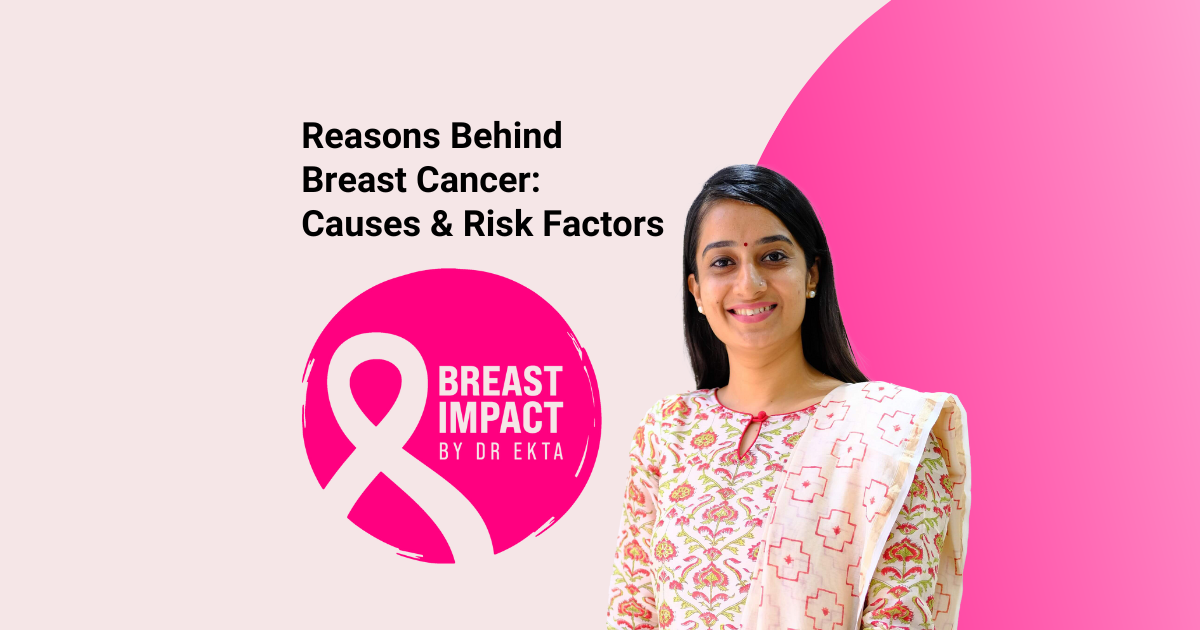One of the most common questions I receive is, “What causes breast cancer?” While there is no single answer, we do know that breast cancer is a complex disease influenced by a combination of genetic, hormonal, and lifestyle factors. Understanding these reasons is crucial for early detection, prevention, and better management of the disease.
What is Breast Cancer?
Before diving into the causes, let’s first understand what breast cancer is. Breast cancer occurs when cells in the breast begin to grow uncontrollably, forming a lump or tumor that can spread to other parts of the body if not detected early. While both men and women can develop breast cancer, it is far more common in women.
Genetic Factors and Breast Cancer
One of the primary reasons behind breast cancer is genetic predisposition. If you have a family history of breast cancer, especially in close relatives like your mother, sister, or grandmother, your risk increases. Some of the key genetic mutations linked to breast cancer include:
- BRCA1 and BRCA2 mutations: These genes normally help repair DNA damage, but mutations in them can significantly increase the risk of breast cancer.
- TP53 and PALB2 mutations: These genetic alterations also contribute to the development of breast cancer.
Although genetic mutations play a role, they only account for about 5-10% of breast cancer cases. This means that the majority of cases are due to other factors.
Hormonal Influence on Breast Cancer
Hormones play a critical role in the development of breast cancer. Estrogen and progesterone, two female hormones, can promote the growth of certain breast cancer cells. Here’s how:
- Early menstruation and late menopause: Women who start their periods before age 12 or experience menopause after 55 have a longer lifetime exposure to estrogen, increasing their risk.
- Hormone replacement therapy (HRT): Long-term use of hormone therapy after menopause, especially combinations of estrogen and progesterone, can elevate breast cancer risk.
- Pregnancy and breastfeeding: Women who have children later in life or do not breastfeed may have a slightly higher risk of developing breast cancer.
Lifestyle Factors and Breast Cancer Risk
Our daily habits significantly impact our health, including the risk of developing breast cancer. Some key lifestyle-related factors include:
- Obesity: Excess body fat leads to higher estrogen levels, which may fuel the growth of breast cancer cells.
- Alcohol consumption: Studies have shown that even moderate alcohol intake can increase breast cancer risk.
- Physical inactivity: Lack of regular exercise has been linked to a higher chance of developing breast cancer.
- Unhealthy diet: A diet high in processed foods, red meat, and unhealthy fats may contribute to inflammation and increase the likelihood of breast cancer.
- Exposure to radiation: Women who have received radiation therapy to the chest for other conditions, such as Hodgkin’s lymphoma, are at a greater risk.
Environmental and Occupational Factors
There is growing evidence that certain environmental and occupational exposures may contribute to breast cancer. These include:
- Exposure to endocrine disruptors: Chemicals found in some plastics, cosmetics, and pesticides can mimic estrogen and may promote cancer growth.
- Night shift work: Some studies suggest that working night shifts may disturb the body’s natural hormonal balance and slightly increase breast cancer risk.
- Air pollution and toxins: Long-term exposure to pollutants, including benzene and other industrial chemicals, may also play a role.
Can We Prevent Breast Cancer?
While we cannot eliminate all risk factors, there are several ways to reduce the chances of developing breast cancer:
- Maintain a healthy weight through a balanced diet and regular exercise.
- Limit alcohol consumption to reduce its impact on breast cancer risk.
- Breastfeed if possible, as it lowers estrogen exposure over a lifetime.
- Be mindful of hormone therapy, and consult your doctor for safer alternatives.
- Get regular screenings, including mammograms and self-examinations, for early detection.
The Importance of Early Detection
Even though there are several reasons behind breast cancer, early detection remains the key to improving survival rates. Regular self-examinations, clinical breast exams, and mammograms help in identifying abnormalities early.
If you notice any changes in your breasts, such as lumps, dimpling of the skin, nipple discharge, or persistent pain, seek medical attention immediately. The earlier breast cancer is diagnosed, the better the chances of successful treatment.
Final Thoughts
Understanding the reasons behind breast cancer is crucial for awareness, prevention, and early diagnosis. While genetics and hormones play a role, lifestyle and environmental factors also contribute significantly. By making informed choices and staying proactive about health screenings, we can take important steps in reducing the risk of breast cancer.
As an oncologist, my goal is to empower individuals with knowledge, encourage preventive measures, and provide the best possible care to those affected. Let’s continue raising awareness about breast cancer, supporting research, and advocating for better healthcare access for everyone.
If you have any questions or concerns about breast cancer, do not hesitate to reach out. Awareness and action can save lives.

